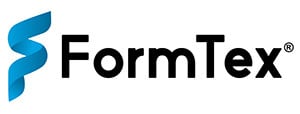The use of artificial intelligence in sales has numerous potential applications. Here are five programs that can change your sales process, though. If you're curious to find out more about sales and sales strategies, follow our sales blog articles from here.
1. Improve performance with conversation intelligence enabled by AI
The majority of high-end conversation intelligence software uses artificial intelligence to scan sales conversations and extract crucial information. The conversation intelligence solution from Hubspot is a fantastic illustration of one of these technologies. To "uncover the why behind sales performance," this platform employs AI. Chorus is another illustration of a conversation intelligence tool driven by AI. This software uses artificial intelligence to understand conversation context, pinpoint crucial points in sales conversations, and even take notice of rival remarks.
2. Access to cutting-edge apps, analysis, and enrichment of data
The practice of adding data from outside sources to a company's database (usually a CRM) is known as data enrichment. This procedure aims to provide a more accurate, thorough, and holistic understanding of a process, lead, customer, or prospect.
By efficiently organizing and utilizing this data, artificial intelligence enables you to optimize this process.
3. Enhance forecasts and pipeline management
The majority of sales professionals anticipate their pipeline incorrectly, despite the fact that most of them adhere to best practices and routinely do sales forecasts. Yet, utilizing artificial intelligence enables you to drastically lower the likelihood of errors in your sales staff.
One examples here would be Aviso, which uses AI to evaluate data and generate insights regarding deals and the pipeline as a whole.
4. Improve and automate sales enablement
Providing your salespeople and sales teams with the appropriate materials and equipment can assist them to complete more transactions. This process is known as sales enablement. There are several approaches and software options for doing this. Which component of the sales process you need to automate or enhance will determine the technologies you use.
As an illustration, consider responding to RFPs (Request for Proposals). According to Loopio's "2021 RFP Response Trends" report, companies send out 150 RFP answers on average year, and these responses account for 35% of their income.
Yet, given that these proposals call for a lot of information, creating and submitting good answers might take a lot of time. In this situation, sales enablement entails offering solutions to control this procedure.
5. Simplify and enhance customer participation in sales
From first outreach until customer onboarding, all buyer-seller contacts that take place during the sales process are referred to as sales engagement. You may use data and insights to expedite this process in one of two ways with AI.
First, AI may aid in understanding the wants and problems of your customers.
According to Salesforce's State of Sales report, understanding client demands is the primary application of AI in sales. Every choice you make in client contacts is influenced by your understanding of the demands of the consumer, from your pitch to your sales material to your entire outreach strategy.
Second, AI helps to automate and personalize client interactions.
Apollo is a fantastic illustration of a sales engagement product that aids with this.






Reviews